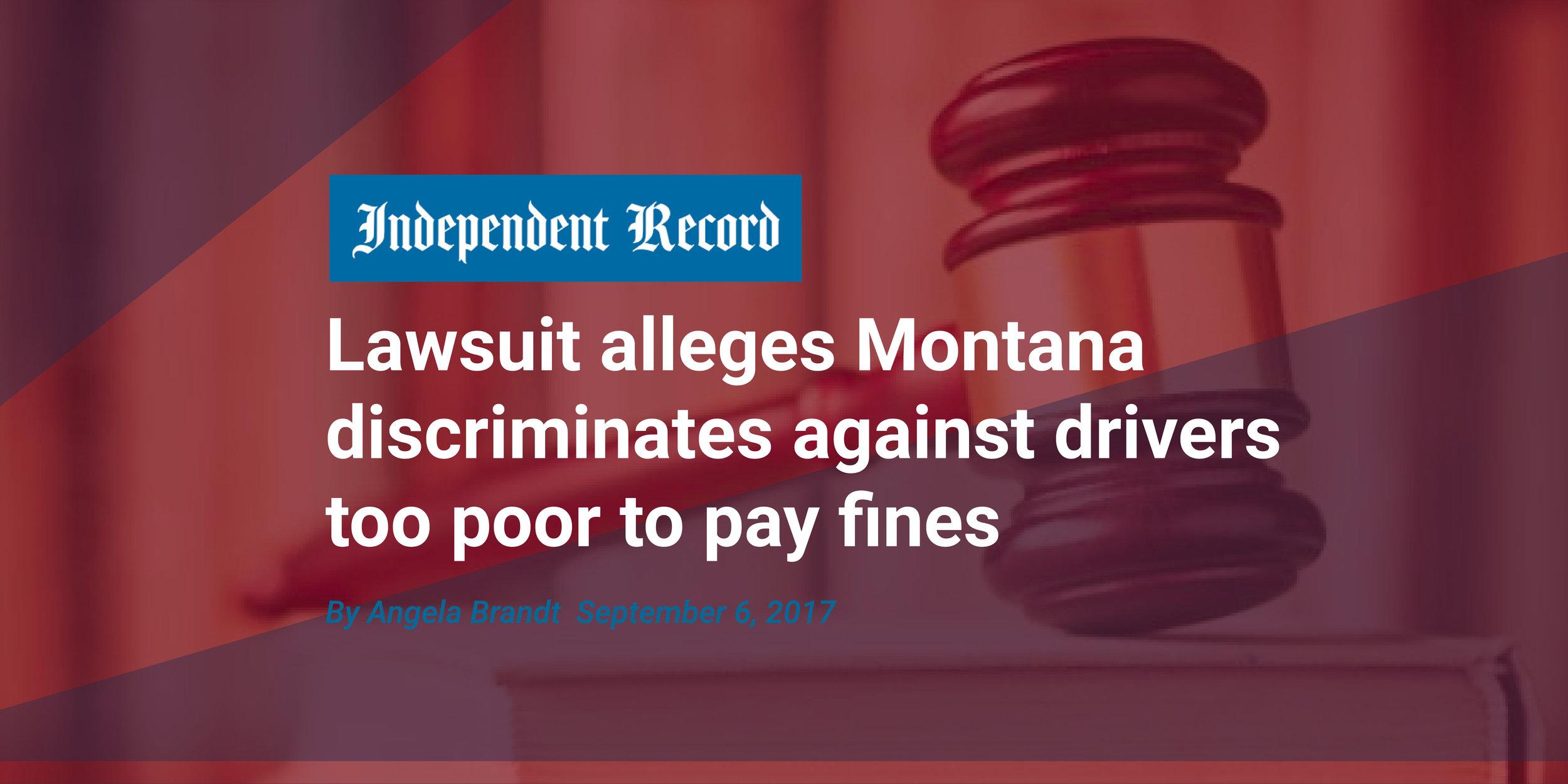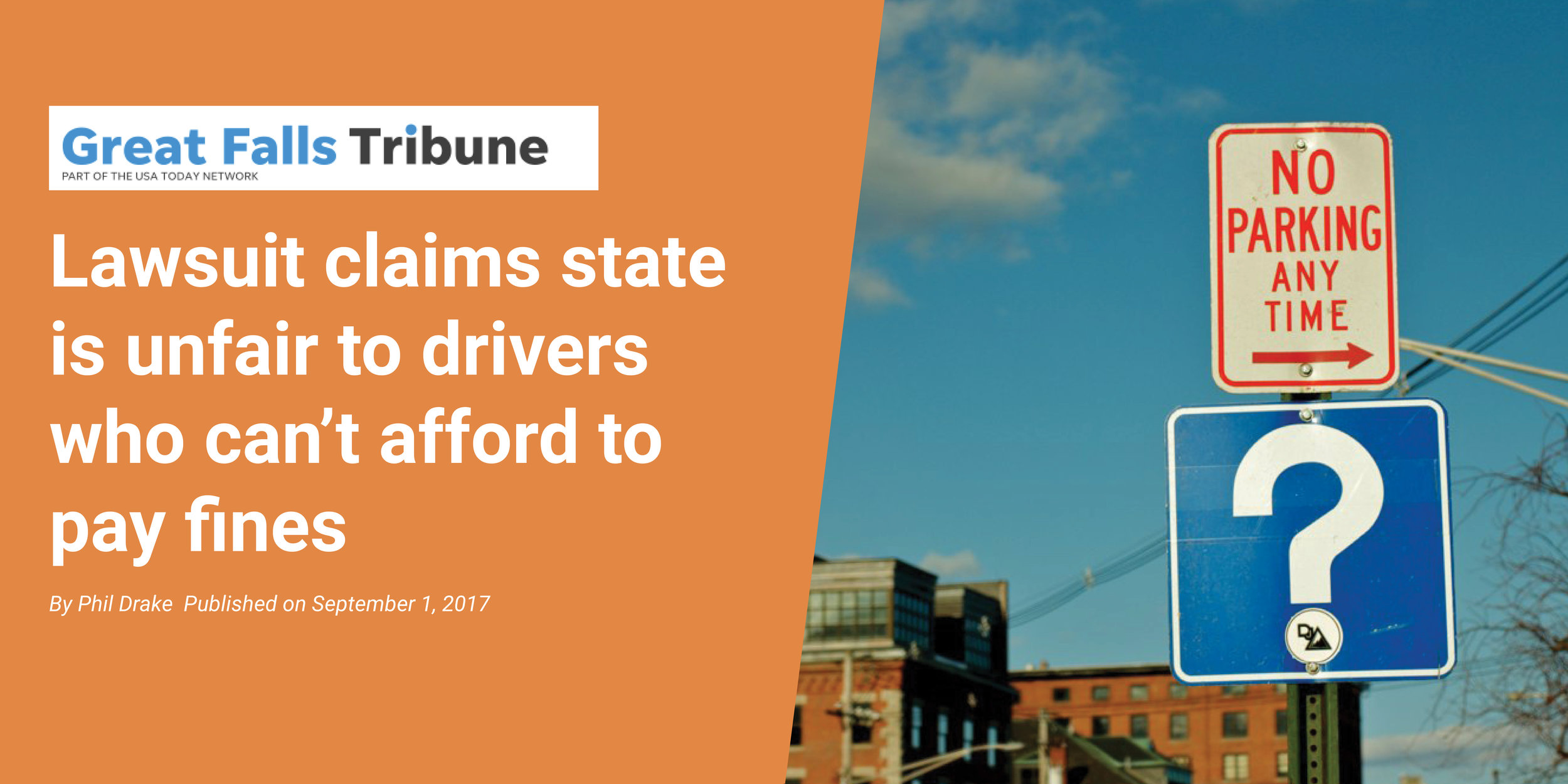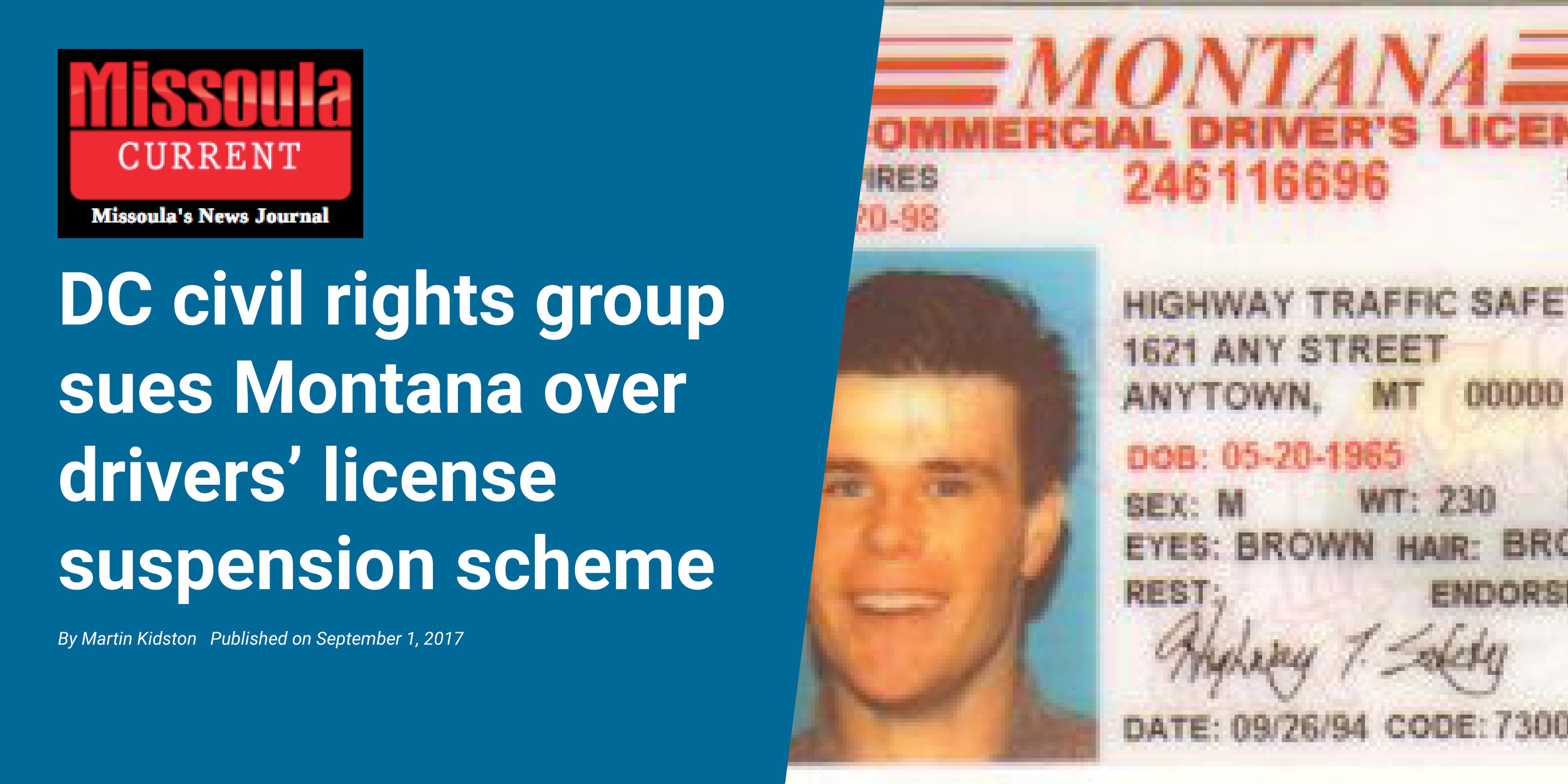DiFrancesco v. Bullock
Every year, Montana was suspending the licenses of an estimated 10,000 drivers because they were unable to pay court debts. The automatic suspensions were designed to coerce payment -- but this practice can never accomplish its intended goal. No punishment can increase the likelihood that a person will pay a debt that he or she is unable to pay.
Montana, like many other states, suspended the driver's license of any person who failed to pay any court-ordered fine, cost, or restitution (including minor traffic tickets) regardless of the reason for nonpayment. That is, the state suspended the licenses even of people who are too poor to pay.
Plaintiff Michael DiFrancesco was a 22-year-old who had recently experienced homelessness. He was never charged with a moving traffic violation. His troubles began when he was fined $185 for a civil infraction he committed when he was only 14 years old. Since then, his court debt had ballooned to nearly $4,000 due solely to his inability to drive legally. Mr. DiFrancesco was a construction worker and was unable to work consistently without a driver's license.
We challenged this practice on the grounds that it violated Equal Protection and Due Process rights as well as the fundamental right to intrastate travel. The law was counterproductive -- attempting to coerce payment by taking away people's ability to drive, thereby impeding their ability to work and earn money -- and therefore failed rational basis review. The law also punished people simply for being poor, a violation of their substantive due process rights. Automatic suspension also deprived impoverished drivers of a protected property interest, their driver's licenses, without an ability-to-pay hearing, a violation of their procedural due process rights.
Effective May 7, 2019, HB 217 was passed to repeal this ineffective practice. More than 10,000 people who had suspended licenses due to unpaid court debt became eligible to have their driving rights restored.
“Almost every week, I have a heartbreaking conversation with a client who is doing everything he or she can to be a lawabiding, working member of the community, but the government has punished he or she in a way that makes that impossible. This is especially true for all but a handful of Montanans who don’t have chauffeurs or affordable and reliable public transit nearby that can get them to where they need to be in order to live, work, and comply with a court’s orders.”
case details
Status: Statute repealed
Date Filed: 08/31/17
Plaintiffs: Michael DiFrancesco, on behalf of proposed class
Defendants:Tim Fox, Montana's Attorney General; Sarah Garcia, MVD Administrator; Michele Snowberger, Bureau Chief of Driver Services Bureau
Jurisdiction: The U.S. District Court for the District of Montana Butte Division
Partners: Robert Farris-Olsen and Scott Peterson ofMorrison, Sherwood, Wilson & Deola, PLLP
IMPACT
Effective May 7, 2019, HB 217 was passed to repeal this ineffective practice. More than 10,000 people who had suspended licenses due to unpaid court debt became eligible to have their driving rights restored.




